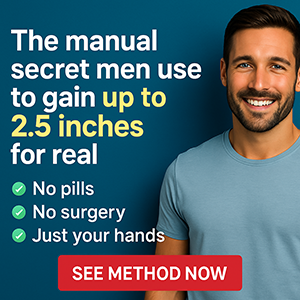The Link Between Caffeine and Testosterone
When it comes to optimizing male health, testosterone is the undisputed king. It affects everything from muscle growth and energy levels to libido and mental clarity. But what role does your daily cup of coffee play in this hormonal landscape? The connection between caffeine and testosterone is more complex—and more surprising—than most men realize.
For years, caffeine has been both praised and demonized. Fitness circles love it for its fat-burning properties and pre-workout kick. But others warn about adrenal fatigue and hormone disruption. So what’s the real story? Let’s dig into the science behind caffeine’s impact on male hormones and how you can use it to your advantage.
How Caffeine Interacts with Hormones
Caffeine primarily works by blocking adenosine receptors in the brain, making you feel more alert and awake. But it also triggers a cascade of hormonal responses—especially involving cortisol and adrenaline. While these “stress hormones” get a bad rap, they serve a purpose: increasing focus and readiness. However, chronic elevation can lead to problems.
Research has shown that moderate caffeine intake can temporarily increase testosterone levels, particularly after resistance training. But too much caffeine—especially without food or during stressful periods—can spike cortisol to levels that may actually suppress testosterone production over time.
Scientific Studies on Caffeine and Testosterone
One study published in the International Journal of Sport Nutrition and Exercise Metabolism found that male athletes who consumed caffeine before lifting weights experienced a noticeable increase in both testosterone and cortisol. This means the timing and context of caffeine use matters.
Another study observed that low to moderate caffeine intake (about 200-400 mg daily) didn’t harm testosterone in healthy men. In fact, it may support higher energy levels and improved workout performance—both of which indirectly boost testosterone production.
Benefits of Caffeine for Male Health
1. Enhanced Physical Performance
Caffeine is one of the most studied and effective performance enhancers. It increases endurance, strength, and power output—all of which stimulate natural testosterone production. Just be sure to hydrate and not overdo it.
2. Improved Mental Focus
Testosterone affects mental clarity and mood. Caffeine sharpens focus and motivation, allowing you to stay on task and conquer your goals. This mental drive translates into greater consistency in workouts, business, and daily life.
3. Appetite and Fat Control
Excess body fat is one of the leading causes of low testosterone. Caffeine helps suppress appetite and boosts metabolism, making it easier to maintain a lean, hormone-friendly physique. Combined with clean eating and strength training, it becomes a powerful ally.
Potential Risks and How to Avoid Them
Like any tool, caffeine can become a crutch. Overconsumption may lead to jitteriness, insomnia, adrenal burnout, or worsened anxiety. These factors can all contribute to lower testosterone if not managed properly. Here’s how to stay in the safe zone:
- Limit intake to 300–400 mg per day (about 2–3 cups of coffee)
- Don’t consume caffeine within 6–8 hours of bedtime
- Avoid caffeine on an empty stomach, especially in the morning
- Cycle off caffeine every few weeks to reset sensitivity
Being intentional with caffeine use keeps your body responsive and protects your hormone balance.
Smart Caffeine Hacks for Maximum Testosterone
1. Use Caffeine Before Strength Training
The best time to combine caffeine and testosterone is before resistance workouts. Not only will it fuel performance, but it may also amplify the natural post-exercise testosterone surge. Try green tea or black coffee about 45 minutes before lifting.
2. Pair Caffeine with Testosterone-Boosting Foods
Combine caffeine with foods rich in zinc, healthy fats, and magnesium—like eggs, avocado, and dark chocolate. This helps stabilize blood sugar and supports hormonal recovery.
3. Choose Quality Sources
Skip the sugary energy drinks and chemical-laced pre-workouts. Instead, opt for organic coffee, matcha, or yerba mate. These natural sources provide antioxidants alongside their energizing kick.
Bottom Line: Use Caffeine Like a Testosterone Weapon
When used correctly, caffeine can support a testosterone-friendly lifestyle. It boosts focus, performance, fat loss, and energy—all key factors in male health. But like anything, balance is crucial. Too much caffeine, especially when combined with poor sleep or chronic stress, can undermine your gains.
Testosterone Boosting Checklist:
✅ Lift weights 3–4x/week
✅ Sleep 7–8 hours
✅ Eat zinc-rich foods
✅ Use caffeine before workouts
Want more tips? Visit our full library of male optimization guides at supremepenis.com/blog. From foods that support hormone health to effective penis training techniques, we cover it all.
Take Charge of Your Hormones
Your energy, drive, and masculinity are worth protecting. Caffeine isn’t the enemy—it’s a tool. Use it with intention. Fuel your body right. Train like a man on a mission. And if you’re ready to go deeper, explore natural enhancement strategies at supremepenis.com.
Morning Rituals That Support Hormonal Health
Most men overlook how their morning routine impacts their hormonal balance. Pairing caffeine with sunlight exposure, hydration, and light movement can significantly improve testosterone output. Morning sunlight, in particular, helps regulate your circadian rhythm, which governs both sleep and hormone production.
Start your day with a glass of water and 10 minutes of sunlight before that first cup of coffee. This small ritual lowers morning cortisol, boosts vitamin D, and primes your system for better testosterone synthesis.
Cold Showers and Caffeine: A Potent Combo
Cold exposure increases dopamine and norepinephrine levels, enhancing your response to caffeine without increasing your dose. Many men report heightened alertness and better hormonal resilience by stacking cold showers with their morning coffee. Try finishing your shower with 30–60 seconds of cold water for a testosterone-supporting jolt.
What About Caffeine Withdrawal?
If you’re cycling off caffeine or reducing intake, expect some withdrawal symptoms—headaches, irritability, low energy. But these usually pass within a few days. During this time, focus on hydration, deep sleep, and adaptogenic herbs like ashwagandha or maca root to support hormonal recovery.
Reducing caffeine doesn’t mean losing your edge—it means regaining control. Once your body resets, you can reintroduce caffeine strategically for even better results without the dependency.
Ultimately, mastering the balance between caffeine and testosterone is about awareness. Listen to your body. Track your energy. Adjust when needed. When used with wisdom, caffeine can enhance—not hinder—your hormonal edge and masculine vitality.









